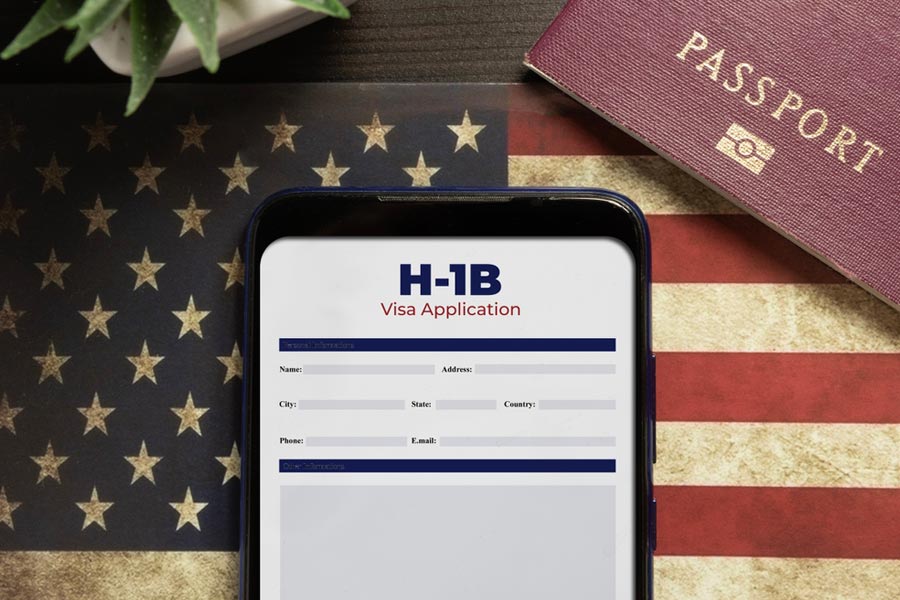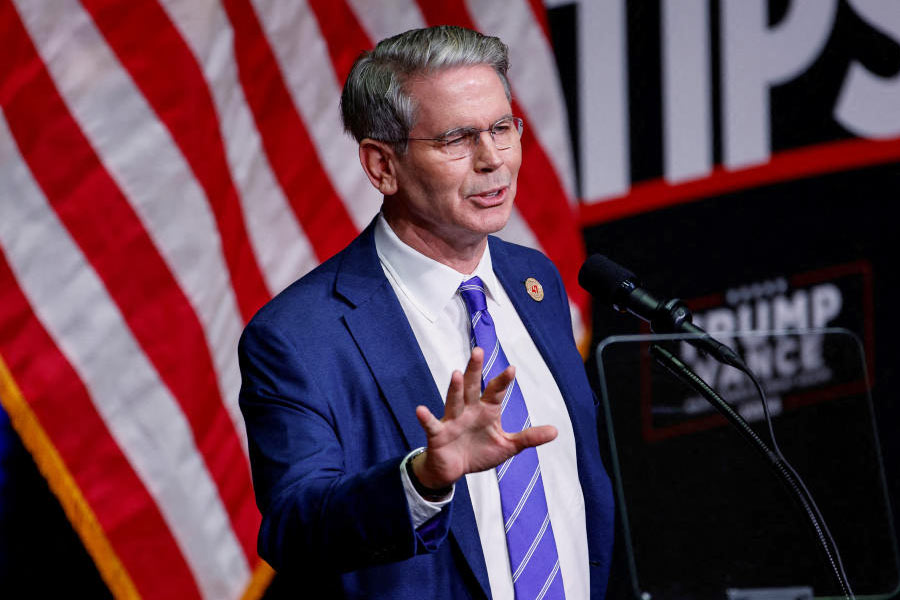An American lawmaker has announced plans to introduce legislation aimed at entirely scrapping the H-1B visa programme and removing the pathway to citizenship associated with it, a move she says would “force” visa holders to “return home” once their status expires.
In a video posted on X on Thursday, Georgia Congresswoman Marjorie Taylor Greene declared, “My dear fellow Americans, I'm introducing a bill to completely eliminate the H-1B visa programme, which has been riddled with fraud and abuse and has been displacing American workers for decades.”
Greene said her proposal includes a single exemption: a yearly cap of 10,000 visas reserved for medical professionals such as doctors and nurses who provide essential care in the United States.
She added, however, that even this limited exemption would not remain permanent.
According to her, the 10,000-per-year cap will be “phased out” over a ten-year period to “allow us time to build our own pipeline of American doctors and physicians.”
Her bill, she said, would also “take away the pathway to citizenship, forcing visa holders to return home when their visa expires.”
Greene argued that the measure seeks to restore what she described as the “original intent” of the H-1B visa — “for it to be temporary.”
“These visas were intended to fulfill a specialty occupational need at a given time. People should not be allowed to come and live here forever. We thank them for their expertise, but we also wish them well so they may return to their home country,” she said.
Greene added that the legislation would ultimately end the programme across all sectors.
“Now this will completely end the H-1B visa programme and all other sectors in the job force and in the workforce. This is America first. It's time to put American citizens first instead of foreigners first, and this has been an abuse for far too long. Americans deserve a future. They deserve a chance. And I believe Americans are the most talented people in the world, the most creative, and I want them to have their American dream,” she said.
As part of her broader effort to boost domestic medical training, Greene said the bill would bar Medicare-funded residency programmes from admitting non-citizen medical students.
She pointed to last year’s data, saying that more than 9,000 US medical graduates did not secure residency placements, while over 5000 foreign-born doctors received residency spots, a situation she described as inequitable.
“This is entirely unfair, and it's America last. My bill will help mitigate the shortage of doctors and nurses in our country, the shortage that we face while at the same time serve as an off-ramp from our reliance on foreign workers by allowing us time to fill our residency programmes with American doctors,” she said.
Currently, the United States issues 65,000 regular H-1B visas annually, along with an additional 20,000 reserved for individuals holding advanced US degrees. The programme is widely used by American companies to employ foreign workers in specialised fields, particularly in technology.
The Trump administration has already undertaken an extensive crackdown to curb perceived misuse of the visa category, which remains heavily used by technology firms. Indian professionals — including IT workers and physicians — continue to constitute one of the largest groups of H-1B holders.
Employers may sponsor H-1B workers for permanent residency, and Green Card holders can apply for U.S. citizenship five years after obtaining permanent resident status.
In September, President Donald Trump issued a Proclamation titled ‘Restriction on Entry of Certain Nonimmigrant Workers’, marking a significant step in his administration’s effort to reform the visa programme.
Under the new policy, certain H-1B petitions filed after September 21, 2025, must include an additional payment of USD 100,000 as a condition for eligibility.












